LIFE
8 Home Habits That Drain Your Wallet
Published
12 months agoon
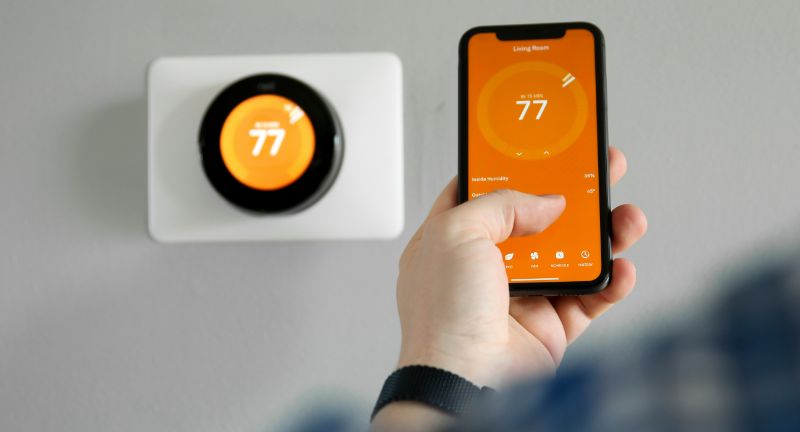
Shutterstock
In the quest to save money, most of us scrutinize our costs and analyze how we budget. Yet, many never consider that our everyday habits at home can be costing them money. Seemingly minor things like how we wash our dishes and clean our clothes can silently drain our finances. Recognizing and adjusting these habits opens the door to not just immediate savings but also fosters a more sustainable lifestyle, revealing hidden potential for better financial efficiency in our daily lives.
Here are 8 home habits that are costing you money.
Leaving Lights On

Shutterstock
Not turning off lights when leaving a room or the house can inflate your electricity bill. This common energy wasting habit can add up over time, especially with incandescent bulbs, which are less energy-efficient than LED bulbs. By simply turning off lights in unoccupied rooms or investing in motion sensors or timers, you can reduce your energy consumption and see noticeable savings on your electricity expenses.
Not Adjusting Air Conditioner When Away

Shutterstock
Keeping the air conditioner running at a comfortable temperature even when the house is empty leads to unnecessary energy use and higher utility bills. This can be particularly costly during peak summer months when cooling costs are already high. Adjusting your thermostat by a few degrees when you’re away or using a programmable thermostat can lead to substantial savings on your cooling costs without sacrificing comfort when you’re home.
Ignoring Leaky Faucets
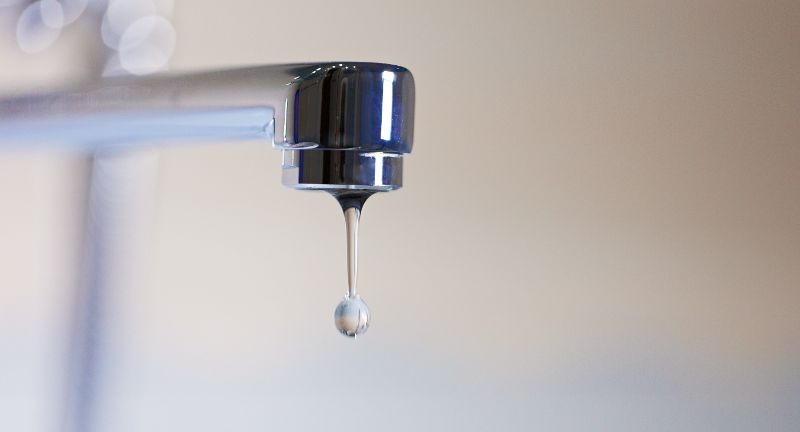
Shutterstock
A leaky faucet might seem like a minor issue, but it can waste a significant amount of water, leading to increased water bills. A single drip per second can waste over 3,000 gallons of water a year. Fixing leaky faucets promptly not only conserves water but also reduces your water bill, contributing to both environmental conservation and financial savings.
Using Inefficient Appliances

Shutterstock
Older appliances are often inefficient and consume more electricity and water compared to newer, energy-efficient models, leading to higher utility bills. For example, an outdated refrigerator or washing machine can use significantly more energy than models that meet current energy efficiency standards. Upgrading to energy-efficient appliances can require an initial investment, but the savings in utility costs over time can be substantial, making it a worthwhile switch for both the environment and your wallet.
Not Sealing Windows and Doors
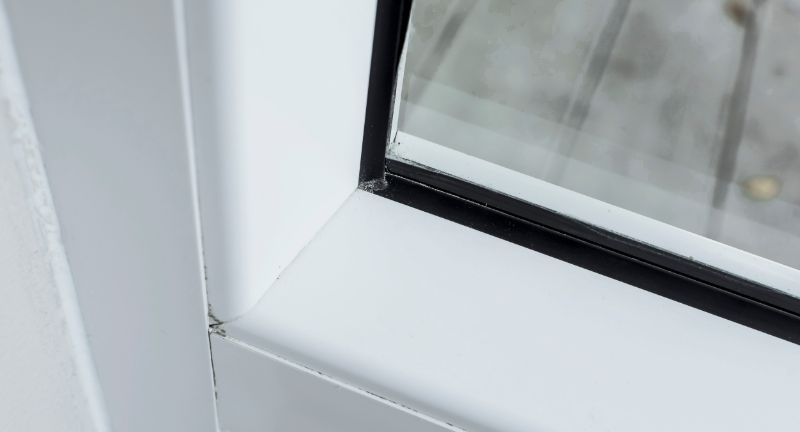
Shutterstock
Unsealed windows and doors can lead to significant heat loss in winter and cool air loss in summer, forcing heating and cooling systems to work harder and use more energy. This not only increases your utility bills but also contributes to wear and tear on your HVAC system. Sealing gaps with weather stripping or caulking and installing door sweeps are cost-effective ways to improve your home’s insulation, leading to immediate savings on heating and cooling costs.
Frequently Using The Dryer
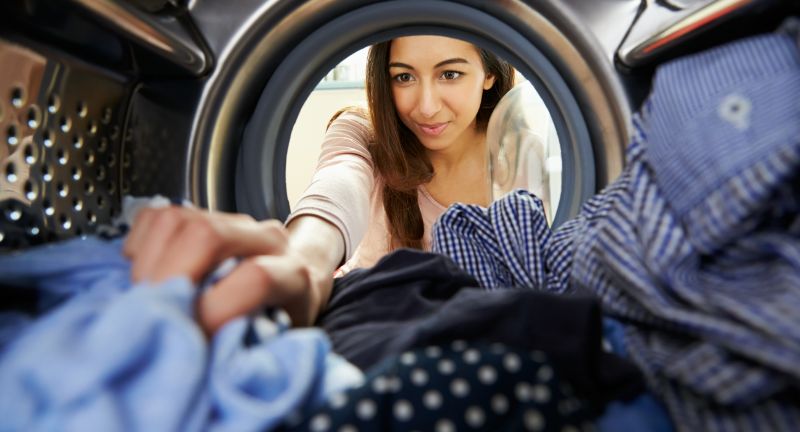
Shutterstock
Using your dryer for every load of laundry can be one of the biggest energy consumers in a household, significantly increasing your electricity bill. Dryers are among the most energy-intensive appliances, and their frequent use can add considerable cost over time. Opting to air-dry clothes on a drying rack or outside on a line whenever possible can drastically reduce energy consumption and lower your utility bills, offering an eco-friendly alternative that also extends the life of your clothing.
Overwatering The Lawn

Shutterstock
Overwatering the lawn not only wastes water but also increases your water bill and can lead to lawn health issues such as root rot and fungal growth. Many people use more water than necessary, thinking it benefits their garden, without realizing the financial and environmental cost. Adjusting irrigation systems to the needs of your specific climate and weather patterns, using drought-resistant plants, and watering during cooler parts of the day can significantly reduce water usage and lower your water bills, while promoting a healthier lawn and garden.
Not Replacing Air Filters
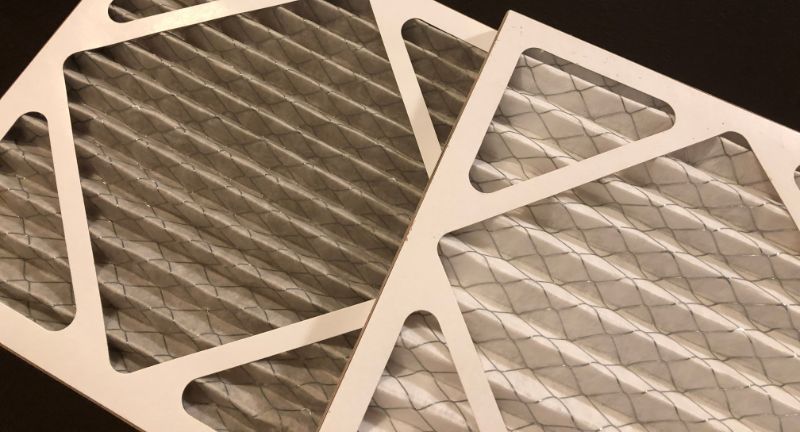
Shutterstock
Failing to replace air filters on a regular schedule can lead to decreased air flow and efficiency, forcing the system to work harder and use more energy, thus increasing utility bills. Clogged filters can also cause premature wear and tear on the HVAC system, potentially leading to costly repairs or replacement. Regularly replacing air filters can enhance system efficiency, improve indoor air quality, and result in significant energy savings, making it a simple yet effective way to reduce household expenses.
Pre-Rinsing Dishes

Getty
The habit of pre-rinsing dishes before placing them in the dishwasher can waste a substantial amount of water, adding unnecessary costs to your water bill. Modern dishwashers are designed to handle food residue without the need for pre-rinsing, making this practice largely redundant. By skipping the pre-rinse and trusting your dishwasher’s capabilities, you can conserve water, save on your utility bills, and still enjoy sparkling clean dishes.
Conclusion

Shutterstock
By paying closer attention to our daily routines and making small adjustments, we can unlock substantial savings within our own homes. This shift towards more mindful consumption not only alleviates financial pressure but also contributes to a more sustainable living environment. Ultimately, embracing these changes in our home habits not only benefits our wallets but also supports the broader goal of reducing our environmental footprint, proving that small actions can indeed lead to significant outcomes.
Related Topics:

More From Financially+
-


10 Most Beautiful Places To Retire On Earth
-


38 Things To Consider Before Buying Your Next Car
-


Things You Need To Stop Wasting Your Money On
-


9 Types of Income The IRS Won’t Tax
-


6 High Stress Jobs (And What They Pay)
-


30 Lucrative Side Hustles for Seniors
-


Social Security: 4 Ways To Forfeit Or Reduce Your Benefits
-


Ditch the 9-to-5: 30 Jobs with Flexible Hours
-


5 Catastrophic Money Mistakes & How To Avoid Them